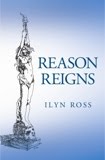A teenager on Goodreads asks: "What is Truth?" In response, I posted the following:
The truth is what conforms to reality. Honesty is the pursuit of truth; it is the refusal to evade or fake reality.
From Royal Serf, based on Objectivism:
The metaphysically given is the standard of right or wrong. In order to succeed, an individual’s values and actions must conform to metaphysically given facts. Man cannot fly, so the Wright brothers invented the airplane; they found a way to counteract the force of gravity. Man cannot walk on water, so we build boats. Man cannot move a mountain, but we can build a tunnel through it. We can’t prevent earthquakes, so we must erect buildings that could withstand them. Man is a mortal being - doctors and pharmaceutical industries try to save and prolong lives.
The purpose of epistemology is to define a method of cognition that makes a fallible being capable of truth, a method that enables man to gain knowledge of an independent reality. Objectivity requires this method of cognition: logic.
Logic is noncontradictory identification within the full context of one’s knowledge.
Epistemology is a practical necessity – it guides man in the proper use of his conceptual faculty. Thinking, to be valid, must adhere to reality. If man’s goal is knowledge, rather than error or delusion, he must use reason.
Reason is the faculty that organizes perceptual units in conceptual terms by following the principles of logic. Reason is the existence-oriented faculty. It is the faculty of proof.
Knowledge, i.e. knowledge of reality, is contextual and hierarchical. Man’s only direct contact with reality is the data of sense – therefore, they are the standard of objectivity. Reduction is the means of connecting an advanced knowledge to reality, i.e. to the perceptually given, by retracing the essential logical structure of its hierarchical roots. Proof is a form of reduction.
Logic is the means of validating a conclusion objectively. Including the recognition of context and hierarchy, logic is the method of achieving objectivity. Only by using logic could man base his conclusions on reality.
From Ayn Rand and Objectivism: truth
More from Royal Serf, based on Objectivism:
Objectivity is both a metaphysical and an epistemological concept pertaining to the relationship of consciousness to existence. Metaphysically, it is the recognition of the fact that reality exists independent of any perceiver’s consciousness. Epistemologically, it is the recognition of the fact that a man’s consciousness must acquire knowledge of reality by means of reason in accordance with logic.
Objectivity holds that in matters pertaining to human knowledge, metaphysically - reality is the only authority; epistemologically – one’s own intellect. Reality is the ultimate arbiter of the mind. In all aspects of human existence, man achieves his values only by making his decisions consonant with the facts of reality.
Axiomatic concepts are the foundation of objectivity. Objectivism has three axioms: existence exists, consciousness, and the law of identity: Aristotle’s A is A. Axioms are perceptual self-evidencies. They are the starting points of cognition, on which all proofs depend.
A is A, and contradictions are impossible. Every entity has a specific, noncontradictory nature. It is self-evident that an entity can act only in accordance with its nature. The law of causality is the law of identity applied to action. Causality is a corollary of identity. All actions are caused by entities. The nature of an action is caused and determined by the nature of the entities that act; a thing cannot act in contradiction to its nature.
A fundamental principle to the metaphysics of Objectivism is the primacy of existence. Existence comes first. Things are what they are independent of consciousness. Consciousness is a dependent – its function is to grasp that which exists.
St. Thomas Aquinas, the man who ended the Middle Ages and ushered in the Renaissance, said reason does not rest on faith but is a self-contained, natural faculty which works on sense experience. Echoing Aristotle, he said that the essential task of reason is to gain knowledge of this world.
St. Thomas Aquinas declared that men must use and obey reason because whatever one can prove by reason and logic is true. He held that faith is valuable as a supplement to reason.
Can reason and faith coexist, parallel to each other, in the same man? This question is included in the Reason Reigns trailer.
Sunday, October 11, 2009
Subscribe to:
Post Comments (Atom)


1 comment:
“Such is the irresistible nature of truth that all it asks, and all it wants, is the liberty of appearing.” — Thomas Paine
Post a Comment